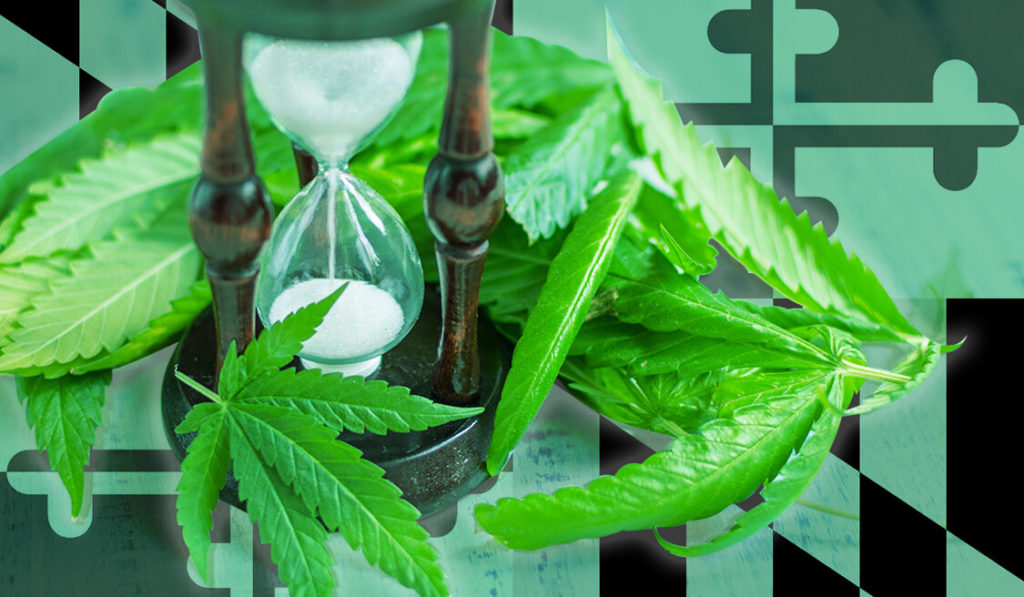Maryland’s House of Delegates Speaker Adrienne Jones (D) announced last week she supports a ballot referendum to legalize cannabis in 2022.
If cannabis legalization was posed as a question on the 2022 ballot, it would be likely to pass considering the growing majority of Maryland residents that have favored legalization since 2015, according to an annual poll from Goucher College. Today, more than two-thirds of Maryland residents support cannabis legalization, including a majority of Republican voters.
“While I have personal concerns about encouraging marijuana use, particularly among children and young adults, the disparate criminal justice impact leads me to believe that the voters should have a say in the future of legalization,” Jones said,
She said the House will pass comprehensive cannabis reform legislation early next year to be considered by voters during Maryland’s 2022 gubernatorial election.
The speaker also created a task force of other delegates who she said will research and outline the implementation of an adult-use cannabis industry in Maryland. However, this isn’t the first time the General Assembly has researched and debated what Maryland’s adult-use cannabis industry would look like. Before the 2021 legislative session, Del. Jazz Lewis introduced HB 32, or the “Inclusion, Restoration and Rehabilitation Act of 2021.”
Del. Lewis told The Outlaw Report he worked on HB 32 for months with the assistance of different cannabis business owners, advocates and other industry professionals. He said much of the research necessary to draft a comprehensive bill has already been done.
Lewis’ bill would have legalized cannabis for all adults in Maryland and gave licensing preference to Black and Brown cannabis business owners whose communities were most harshly impacted by racist enforcement of cannabis law.
In the senate, Sen. Brian Feldman introduced SB 708 which largely mirrored Lewis’ bill minus one key discrepancy on whether to put a cap on the number of micro-grower licenses distributed (more on that here).
“I’m just hopeful that the work group produces a product that is grounded in racial equity, and that their policy passes this year,” Lewis said.
Maryland was one of the first states in the Mid-Atlantic to legalize medicinal cannabis but it has lagged behind in the region when it comes to outright legalization—outpaced by New York, New Jersey and even the typically more conservative-leaning Virgnia.
Between the regional consensus, overwhelming public support and the bipartisan benefit to creating an additional stream of tax revenue from cannabis sales for the state— it’s clear cannabis legalization in Maryland (and the rest of the country) is inevitable. The question that comes up for many cannabis advocates is, “Why didn’t the General Assembly pass full cannabis legalization when they had the chance?
Jazz Lewis said his legislation did not pass during the 2021 legislative session because of issues superseding cannabis legalization such as passing a state-level COVID-19 relief package, police reform and making repairs to the state’s unemployment system.
However, some advocates said neither bill passed due to legislator’s inability to reconcile the biggest difference between the two bills— whether or not to put a cap on the number of micro-grower licenses permitted.
Micro-growers are cannabis farmers with operations less than 5,000 sq. ft. who might not have access to the same investor-backed capital that allow multistate operators like Curaleaf and Green Thumb Industries to fund massive grow operations and sell their product at the lowest price.
Lewis said he will do everything in his power to make sure there are sufficient micro-grow provisions in Speaker Jones’ legalization bill.
“if we are going to expand the number of businesses that are small, minority or women-owned,” he said. “If there are only a few licenses, then the people who have historically had the most capital are going to get those licenses.”
Lewis alludes to the fact that investor capital or hedge fund-backed multistate operators are currently dominating Maryland’s medical cannabis industry, pushing out more and more of the already limited number of locally-owned cannabis businesses in the industry.
According to Lewis, Jones’ legalization bill must include micro-grow provisions and more opportunities for less wealthy and connected entrepreneurs to participate in Marylnad’s adult-use cannabis industry.
If not, Lewis said, “it will be a rerun of a show we’ve seen many times.”

